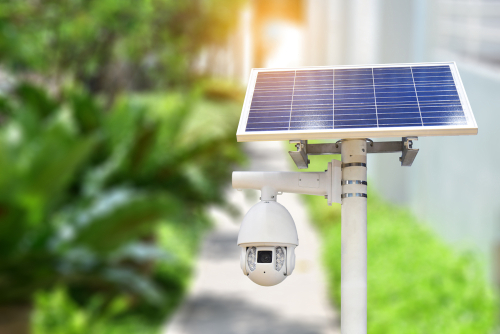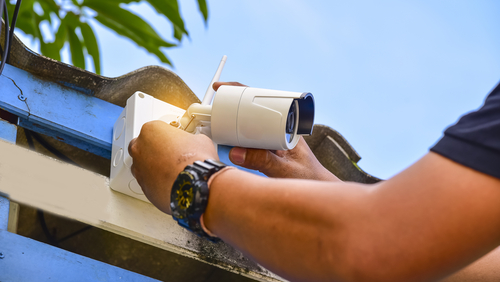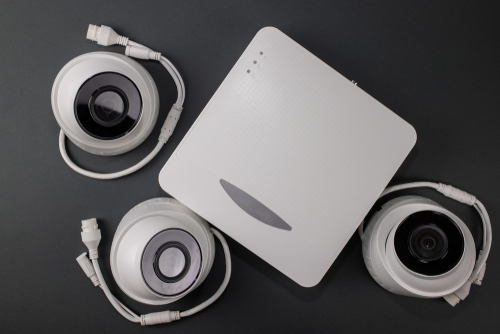
Boost The Security Of Your Home Or Business With CCTV Installation
December 28, 2019
Top 9 CCTV Installation Tips For The Best Home Surveillance In Singapore
December 28, 2019Things To Know Before Buying A CCTV Camera In Singapore

In the past few years, Singapore developed a lot and many new people decided to move here, pursuing a better life. Because of the numerous companies that are constantly investing here, this city has one of the biggest standard of living in the whole world. Unfortunately, the well being of Singapore also attracted a lot of thieves or burglars, willing to take advantage of the poorly secured facilities. That’s why, it’s important for every Singaporean to properly secure its residence and to make sure that no burglar will be able to break through. Thankfully, there are many security companies available here. They are ready to offer you the best custom security equipment, adaptable to your particular needs and preferences. However, the most important security feature consists in a proper surveillance system. The following article aims to explain you everything you need to know, in order to choose the best CCTV system.
1) Choose the optimal sensor
The main advantage of a CCTV camera is in its digital sensor. That’s why, you need to pay attention to this criteria because it’s going to make a big difference. Whenever, you’re searching for a CCTV camera, you need to look at the sensor from two different angles: its size and its type. A CCTV camera sensor can be either a CCD or a CMOS. A CMOS is cheaper and it will need a lower power in order to operate. Still, it’s not very sensitive and the clarity isn’t one of the best. In many cases, this can be a real problem if you need facial recognition. The CCD is more expensive and it requires more energy, but it’s also more sensitive. It will be triggered by any motion whatsoever and it will provide a clear and accurate image. The size of the sensor is also important. A bigger sensor can receive more light and therefore, capture high quality images. The best sensor on a CCTV camera is a 1/3 inch CCD model. It will be able to take accurate images and you will be able to know, when someone is trespassing your property.
2) Choose the optimal lens
Lens are also extremely important when choosing a CCTV camera. The lens are the ones that process the light captured by the sensor, and that’s what you’re going to see on your display. It can also determine the distance from which you can see the important details of a person, or the car plate of a suspicious car. The modern CCTV cameras come with a digital and optical zoom lens. The digital zoom is helpful, but it will not provide more quality than the original footage. Instead, the optical zoom can magnify the image, keeping all the important details.
3) Optimal resolution
The resolution of a CCTV camera is also known as the TVL. The resolution of a camera is not only influenced by the camera itself, and the output ( the processor) has a very important role as well. Most of the standard cameras come with a resolution between 380 TVL and 540 TVL. It’s very easy for a beginner to make a mistake and to opt for the highest resolution camera. Even though this approach isn’t necessarily wrong, the experts are advising us to go for a 420 TVL. A higher resolution will lead to an increased power consumption and more than that, it will be utterly pointless without a strong processing unit, capable of displaying those images. That’s why, you need to find a balance between these two and purchase a 420 TVL.
4) Choose the biggest coverage
Every house has a “weak spot”, where a thief can easily break in. In order to avoid such situations, is important for your CCTV camera to cover a wider area, so it can detect any potential trespasser. You can always put two or three smaller cameras in a single spot, but this is just a way of complicating things and a waste of money. Considering this, you will need a camera with a wider coverage. A 2 MP camera can cover a surface six times bigger than an analog camera. To put it more simple, you would need six analog cameras, to do the job of a single 2 MP CCTV device. More than that, you can opt for a fisheye CCTV. They are more expensive but they will be able to provide a 360 degrees view. Just make sure to place it on a high point, to avoid any blind spots.
5) Inside or outside
When choosing a CCTV camera, is also important to know where you want to place it. There are cameras for the interiors and devices for the exterior. The indoor camera will be able to focus the image faster, but it won’t respond well to any light distortions. On the other hand, an outdoor camera will come with some extra features, like night vision and light adjustment. However, it’s a little slow than the first mentioned one and it won’t provide a premium quality, especially under extreme weather conditions (extreme light, humid atmosphere etc.). So it’s essential to know from the beginning where do you want to place your future CCTV camera and avoid any unpleasant situations.
6) Camera shape
CCTV cameras come in three main shapes, and they all present advantages and disadvantages. The bullet camera is ideal for commercial purposes and for monitoring closed spaces like shops or hotels. It’s very discrete and accurate, but it’s a little sensitive for outer use. A dome camera is the best way of protecting any open space, because it’s well hidden and it cannot be vandalized. On the negative note, this camera is not very flexible and it cannot cover large areas. An IR camera is the perfect option for protecting indoor and outdoor areas, during day and night time. They have a wide coverage and they adjust their settings, according to the available light. The only negative thing about this camera is the price, which can be pretty steep.
Conclusion
Choosing the right CCTV camera is not that hard, once you have all the necessarily information. Just think about your particular needs and preferences, establish a budget and purchase the best product for you. No matter how expensive the CCTV camera will be, consider it an investment, for yours and your family safety.



